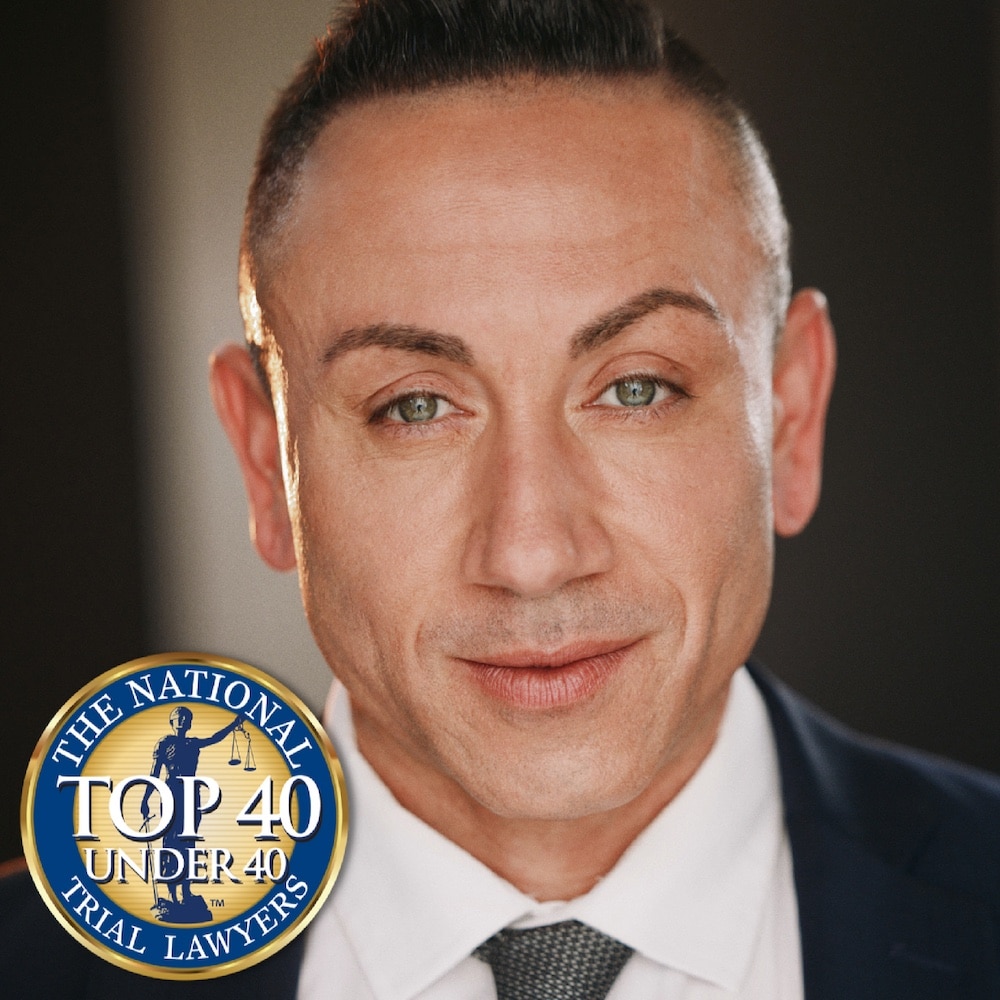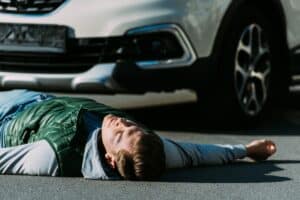EXCELLENT
Wrongful Death Lawyer
If someone else’s negligence causes you to lose a loved one, you need an experienced wrongful death lawyer on your side.
If you have lost someone close to you due to an accident caused by someone else’s negligence, it is a tragedy that can profoundly affect you and your family’s future. This is the very reason that the law addresses the issue with wrongful death cases, which help survivors recover for their losses.
If someone else’s negligence causes you to lose a loved one, you need an experienced wrongful death lawyer on your side.
If you have lost someone close to you due to an accident caused by someone else’s negligence, it is a tragedy that can profoundly affect you and your family’s future. This is the very reason that the law addresses the issue with wrongful death cases, which help survivors recover for their losses.
WHO MAY FILE A WRONGFUL DEATH CLAIM?
It depends on the state. In the State of California, for example, only the following parties are eligible to bring a wrongful death claim:
- The surviving spouse or domestic partner of the deceased
- The surviving children of the deceased
- Anyone who would be entitled to the estate through intestate succession (if the above do not apply)
WHICH DAMAGES ARE AVAILABLE?
Wrongful death cases are very similar to personal injury cases – except the decedent’s survivors make the claim for damages. Such damages can include:
- Funeral and burial costs
- Medical costs associated with the decedent’s fatal injury
- Lost income for the survivors, including that income into the future that the decedent would have been expected to earn
- Loss of love and other emotional assets for the survivors
Like personal injury cases, wrongful death cases are subject to a statute of limitations. In California, this means that the case must be filed within two years of the decedent’s death.
CONTACT MARK
Injuries that result in death are always hard; always unexpected. Although you can’t bring your loved one back, the dedicated attorneys at My Lawyer Mark have the experience, commitment, and compassion to fight for the compensation you need to begin your journey toward healing. We’re here to help, so please don’t hesitate to contact us today.
In California, who has standing to sue for wrongful death, and when is a wrongdoer liable for the death? Here’s what you need to know:
To bring a lawsuit, California Code of Civil Procedure 377.60 allows the surviving spouse, domestic partner, children, and grandchildren (if the deceased’s children are also deceased), and other minor children who were dependent on the deceased for at least 50% of their financial support. In addition, anyone else who would be entitled to the deceased’s property under California’s laws on intestate succession can also sue for wrongful death.
But when is a wrongdoer liable for the death?
In California, survivors can bring a wrongful death lawsuit against a wrongdoer for any type of claim based on negligence, gross negligence, recklessness or an intentional wrongful act. Such wrongful acts that can cause death include car accidents, pedestrian “knock-downs,” slip-and-fall accidents, drowning, assault and battery, murder or manslaughter, elder abuse or neglect, child abuse or neglect, and medical malpractice.Moreover, heirs can also sue in “strict liability” if their loved one was killed by a dog bite or mauling or defective product, even if the defendant was not negligent. Keep in mind that a person could be liable for wrongful death even if he or she was acquitted in a related criminal case.
In California, who has the right to sue for wrongful death?
The answer lies within the California Code of Civil Procedure 377.60, which permits specific family members, including surviving spouses, domestic partners, children, and dependent grandchildren or minor children, to sue (or their personal representatives if the family members are deceased). Additionally, any individual entitled to the deceased person’s property under California’s laws on intestate succession would have the right to sue.
Now that we’ve covered who has standing, let’s explore when a wrongdoer can be held liable for wrongful death. California law allows for a wrongful death action to be brought forth by survivors based on negligence, gross negligence, recklessness, or an intentional wrongful act. This could arise from a variety of incidents, including car accidents, pedestrian “knock-downs,” slip-and-fall accidents, drowning, assault and battery, murder or manslaughter, elder abuse or neglect, child abuse or neglect, and medical malpractice. If a loved one was killed by a dog bite or mauling or a defective product, even if the defendant was not negligent, heirs can also sue under “strict liability” in California.
Notably, even if an individual is acquitted in a related criminal case, they could still be found liable for wrongful death.
Understand the Compensation in a California Wrongful Death Case
Losing a loved one is an extremely difficult experience for anyone. Coping with the emotional pain and financial uncertainty can be a daunting challenge. At such times, it’s vital to know your rights in terms of compensation for wrongful death cases in California.
If you’re considering filing for a wrongful death lawsuit in California, the following information can help you. Here’s everything you need to know about the damages and compensation you can seek for such cases in California.
The Length of Economic and Non-Economic Compensation
Firstly, let’s look at what damages are recoverable in a wrongful death suit in California. As per the law, the amount of time for which monetary compensation is recoverable is the shorter of the deceased life expectancy at the time of the wrongful act or the life expectancy of the plaintiff at that time.
1. Economic damages:
- The monetary support the deceased would have contributed to the family during their lives
- The loss of gifts or benefits the heirs could have expected to receive from the deceased
- Funeral and burial expenses
- The reasonable value of household services the deceased would have provided
2. Non-economic damages:
- Society and companionship
- Protection
- Affection
- Moral support
- Training and guidance
- Sexual relations
As of 2022, plaintiffs can claim for damages for the decedent’s pain, suffering, or disfigurement.
How much can you claim in Noneconomic damages?
There is no fixed standard for deciding the amount of noneconomic damages in a California wrongful death case. A jury can award any amount that is reasonable based on the evidence and common sense.
Oddly, noneconomic damages may not include amounts for the heirs’ grief, sorrow, or pain and suffering caused by their loved one’s death.
Can Heirs Get Punitive Damages?
In most cases, an heir cannot recover punitive damages in a wrongful death case under California law, except if the deceased was killed as a result of felony homicide for which the defendant has been convicted.
Punitive damages may be available, however, through a “survival action” on behalf of the decedent’s estate.
Understanding the Differences: Wrongful Death vs. Survival Action Lawsuits
Losing a loved one can be a trying experience, but having the legal knowledge to secure compensation for damages incurred can make the journey a little bit easier. California wrongful death lawsuits can be complicated without a clear understanding of survival action cases. In this article, we will be breaking down the differences between the two and what each entails.
When to Combine Lawsuits:
In many cases, wrongful death and survival lawsuits are tried together when they result from the same underlying wrongful act. This can provide heirs the best chance of securing compensation and the full extent of damages.
Wrongful Death Lawsuits:
A wrongful death lawsuit compensates surviving family members for the loss of their loved one. This includes damages for loss of income and companionship.
Survival Action Lawsuits:
Survival lawsuits are often combined with wrongful death cases, but they serve a different purpose. These types of lawsuits allow heirs to sue on behalf of the deceased’s estate for two types of losses: claims unrelated to death known by the deceased person as of their date of passing, and claims for injury that led to a death. A key difference to keep in mind is that survival actions can include awards for punitive damages.
Conclusion:
Navigating wrongful death and survival lawsuits can be overwhelming, but it’s important to understand the differences in their structure and purpose. Knowing what each lawsuit entails can provide a solid foundation for seeking compensation for the loss of a loved one.
Understanding the Differences: Wrongful Death vs. Survival Action Lawsuits
Losing a loved one is challenging. When death is wrongful, the pain can be even more significant. If someone you love has died wrongfully in California, you may have a viable wrongful death claim. However, it’s vital to understand California’s wrongful death statute of limitations and survival actions.
What Is the California Wrongful Death Statute of Limitations?
In California, wrongful death claims are subject to a two-year statute of limitations. This means that you have two years from the date of your loved one’s death to file a lawsuit against the responsible party.
When Does the Time Period Start Running?
The two-year time frame to sue starts running on the date of death.
What Are Survival Actions?
Survival actions refer to lawsuits that the deceased person could have filed had they survived.
What Is the Time Limit for Survival Actions?
The California Probate Code allows the estate to sue the responsible party for wrongful death on behalf of the deceased person. The estate has two years to sue from the latter of:
- The date of an injury, or
- Six months after death.
We’re Here to Help You
At our law firm, we understand that this is a challenging time, and we’re here to help. As former cops and investigators, our wrongful death lawyers know how to connect the dots and put together a compelling civil lawsuit to recover damages for you during this difficult time.
If you lost a loved one because of someone else’s wrongful act, we invite you to speak to one of our knowledgeable California wrongful death attorneys. Call us directly to schedule a free consultation.

WHO MAY FILE A WRONGFUL DEATH CLAIM?
It depends on the state. In the State of California, for example, only the following parties are eligible to bring a wrongful death claim:
- The surviving spouse or domestic partner of the deceased
- The surviving children of the deceased
- Anyone who would be entitled to the estate through intestate succession (if the above do not apply)
WHICH DAMAGES ARE AVAILABLE?
Wrongful death cases are very similar to personal injury cases – except the decedent’s survivors make the claim for damages. Such damages can include:
- Funeral and burial costs
- Medical costs associated with the decedent’s fatal injury
- Lost income for the survivors, including that income into the future that the decedent would have been expected to earn
- Loss of love and other emotional assets for the survivors
Like personal injury cases, wrongful death cases are subject to a statute of limitations. In California, this means that the case must be filed within two years of the decedent’s death.
CONTACT MARK
Injuries that result in death are always hard; always unexpected. Although you can’t bring your loved one back, the dedicated attorneys at My Lawyer Mark have the experience, commitment, and compassion to fight for the compensation you need to begin your journey toward healing. We’re here to help, so please don’t hesitate to contact us today.
In California, who has standing to sue for wrongful death, and when is a wrongdoer liable for the death? Here’s what you need to know:
To bring a lawsuit, California Code of Civil Procedure 377.60 allows the surviving spouse, domestic partner, children, and grandchildren (if the deceased’s children are also deceased), and other minor children who were dependent on the deceased for at least 50% of their financial support. In addition, anyone else who would be entitled to the deceased’s property under California’s laws on intestate succession can also sue for wrongful death.
But when is a wrongdoer liable for the death?
In California, survivors can bring a wrongful death lawsuit against a wrongdoer for any type of claim based on negligence, gross negligence, recklessness or an intentional wrongful act. Such wrongful acts that can cause death include car accidents, pedestrian “knock-downs,” slip-and-fall accidents, drowning, assault and battery, murder or manslaughter, elder abuse or neglect, child abuse or neglect, and medical malpractice.Moreover, heirs can also sue in “strict liability” if their loved one was killed by a dog bite or mauling or defective product, even if the defendant was not negligent. Keep in mind that a person could be liable for wrongful death even if he or she was acquitted in a related criminal case.
In California, who has the right to sue for wrongful death?
The answer lies within the California Code of Civil Procedure 377.60, which permits specific family members, including surviving spouses, domestic partners, children, and dependent grandchildren or minor children, to sue (or their personal representatives if the family members are deceased). Additionally, any individual entitled to the deceased person’s property under California’s laws on intestate succession would have the right to sue.
Now that we’ve covered who has standing, let’s explore when a wrongdoer can be held liable for wrongful death. California law allows for a wrongful death action to be brought forth by survivors based on negligence, gross negligence, recklessness, or an intentional wrongful act. This could arise from a variety of incidents, including car accidents, pedestrian “knock-downs,” slip-and-fall accidents, drowning, assault and battery, murder or manslaughter, elder abuse or neglect, child abuse or neglect, and medical malpractice. If a loved one was killed by a dog bite or mauling or a defective product, even if the defendant was not negligent, heirs can also sue under “strict liability” in California.
Notably, even if an individual is acquitted in a related criminal case, they could still be found liable for wrongful death.
Understand the Compensation in a California Wrongful Death Case
Losing a loved one is an extremely difficult experience for anyone. Coping with the emotional pain and financial uncertainty can be a daunting challenge. At such times, it’s vital to know your rights in terms of compensation for wrongful death cases in California.
If you’re considering filing for a wrongful death lawsuit in California, the following information can help you. Here’s everything you need to know about the damages and compensation you can seek for such cases in California.
The Length of Economic and Non-Economic Compensation
Firstly, let’s look at what damages are recoverable in a wrongful death suit in California. As per the law, the amount of time for which monetary compensation is recoverable is the shorter of the deceased life expectancy at the time of the wrongful act or the life expectancy of the plaintiff at that time.
1. Economic damages:
- The monetary support the deceased would have contributed to the family during their lives
- The loss of gifts or benefits the heirs could have expected to receive from the deceased
- Funeral and burial expenses
- The reasonable value of household services the deceased would have provided
2. Non-economic damages:
- Society and companionship
- Protection
- Affection
- Moral support
- Training and guidance
- Sexual relations
As of 2022, plaintiffs can claim for damages for the decedent’s pain, suffering, or disfigurement.
How much can you claim in Noneconomic damages?
There is no fixed standard for deciding the amount of noneconomic damages in a California wrongful death case. A jury can award any amount that is reasonable based on the evidence and common sense.
Oddly, noneconomic damages may not include amounts for the heirs’ grief, sorrow, or pain and suffering caused by their loved one’s death.
Can Heirs Get Punitive Damages?
In most cases, an heir cannot recover punitive damages in a wrongful death case under California law, except if the deceased was killed as a result of felony homicide for which the defendant has been convicted.
Punitive damages may be available, however, through a “survival action” on behalf of the decedent’s estate.
Understanding the Differences: Wrongful Death vs. Survival Action Lawsuits
Losing a loved one can be a trying experience, but having the legal knowledge to secure compensation for damages incurred can make the journey a little bit easier. California wrongful death lawsuits can be complicated without a clear understanding of survival action cases. In this article, we will be breaking down the differences between the two and what each entails.
When to Combine Lawsuits:
In many cases, wrongful death and survival lawsuits are tried together when they result from the same underlying wrongful act. This can provide heirs the best chance of securing compensation and the full extent of damages.
Wrongful Death Lawsuits:
A wrongful death lawsuit compensates surviving family members for the loss of their loved one. This includes damages for loss of income and companionship.
Survival Action Lawsuits:
Survival lawsuits are often combined with wrongful death cases, but they serve a different purpose. These types of lawsuits allow heirs to sue on behalf of the deceased’s estate for two types of losses: claims unrelated to death known by the deceased person as of their date of passing, and claims for injury that led to a death. A key difference to keep in mind is that survival actions can include awards for punitive damages.
Conclusion:
Navigating wrongful death and survival lawsuits can be overwhelming, but it’s important to understand the differences in their structure and purpose. Knowing what each lawsuit entails can provide a solid foundation for seeking compensation for the loss of a loved one.
Understanding the Differences: Wrongful Death vs. Survival Action Lawsuits
Losing a loved one is challenging. When death is wrongful, the pain can be even more significant. If someone you love has died wrongfully in California, you may have a viable wrongful death claim. However, it’s vital to understand California’s wrongful death statute of limitations and survival actions.
What Is the California Wrongful Death Statute of Limitations?
In California, wrongful death claims are subject to a two-year statute of limitations. This means that you have two years from the date of your loved one’s death to file a lawsuit against the responsible party.
When Does the Time Period Start Running?
The two-year time frame to sue starts running on the date of death.
What Are Survival Actions?
Survival actions refer to lawsuits that the deceased person could have filed had they survived.
What Is the Time Limit for Survival Actions?
The California Probate Code allows the estate to sue the responsible party for wrongful death on behalf of the deceased person. The estate has two years to sue from the latter of:
- The date of an injury, or
- Six months after death.
We’re Here to Help You
At our law firm, we understand that this is a challenging time, and we’re here to help. As former cops and investigators, our wrongful death lawyers know how to connect the dots and put together a compelling civil lawsuit to recover damages for you during this difficult time.
If you lost a loved one because of someone else’s wrongful act, we invite you to speak to one of our knowledgeable California wrongful death attorneys. Call us directly to schedule a free consultation.
EXCELLENT
CONTACT AN EXPERIENCED PERSONAL INJURY LAWYER TODAY
When the possibility of an injury claim arises, you’ll want Mark Ramos Kiran, a preeminent personal injury attorney, championing your cause. Mark understands the gravity of such moments and is fully equipped to safeguard your rights. With his expertise and dedication, he’s prepared to assist. Reach out to Mark for a complimentary discussion about your potential claim.
1%
Success Rate
1%









